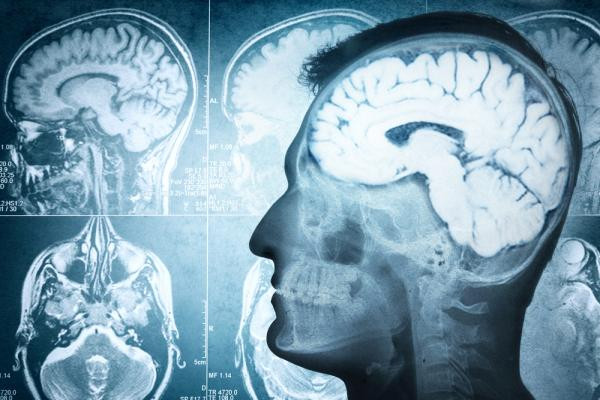Medical discovery: Head injuries can alter genes in the brain
An international team of researchers has found that head injuries can damage hundreds of genes in the brain, leading to potentially dangerous illnesses.
Accordingly, a new study from the University of California in Los Angeles identified the host gene that controls hundreds of other genes involved in disease conditions such as Alzheimer's and Parkinson's disease.
When a head injury occurs, it causes damage to the host genes, which means hundreds of other genes will also be affected, causing neurological, mental, and disorder disorders to rise. dynamic, lack of concentration, autism disorders, schizophrenia, even stroke or Alzheimer's and Parkinson's.
- Scientifically proven: Alzheimer's dementia signs are expressed through the retina of the eye
- Eat grapes daily to prevent Alzheimer's disease

' We believe that the host genes affected by head injuries will cause a series of disadvantages related to hundreds of other genes ' - Mr. Xia Yang, UCLA Professor of Integrated Biology and Physiology said in one Press Release.
In addition, the team showed that, when a head injury occurs, the overall gene can be converted into another gene, or it can turn into other abnormal neuronal proteins that even change the number of genes in every neuron. And most dangerous, when a gene that turns into an abnormal neurological prorein leads to the risk of developing dementia neurodegenerative disease like Alzheimer's.
' Very few people know the extremely dangerous impact of head injuries, especially with military and players, they are very vulnerable to neurological disorders in later life ' - Fernando Gomez-Pinilla, Professor of Surgery Neurology and Integrated Biology at UCLA said.
To reach this conclusion, the UCLA research team recruited 20 mice and half of them were artificially injured in the head and into a labyrinth. The results showed that mice with head injuries had to take up to 25% of the time to escape the maze compared to normal mice without head injuries.
The researchers sucked RNA from the hippocampus brain region, the memory brain region as well as monitored white blood cells, the immune system and gene analysis in mice with head injuries. Results showed that up to 268 genes in the hippocampus brain area were altered, and 1,215 genes in the brain leukocytes were also altered.
' A new surprise shows that not only the brain and gene genes in the blood cells in the brain are changed, ' - Yang said.
According to Yang, this study shows which genes are affected by brain injury in addition to causing specific serious diseases, the study will also show genes that govern metabolism, information and signals. conduction in the brain. Since then, the medical community has a basis for identifying target genes and treating brain disorders.
This study has just been published in EBioMedicine.
You should read it
- ★ This is what happens to the brain when you are hit on the head
- ★ Transplanting a mini-human brain into mice causes concern about smart new hybrids and increasingly more human-like
- ★ MIT's imaging techniques shed light on brain activity
- ★ Women have brains that are more powerful than men
- ★ 6 simple things to help your brain get better and better